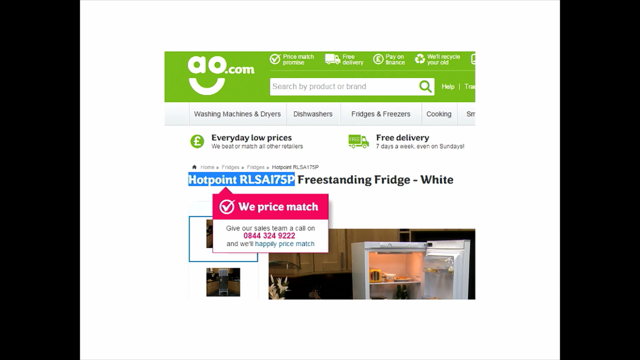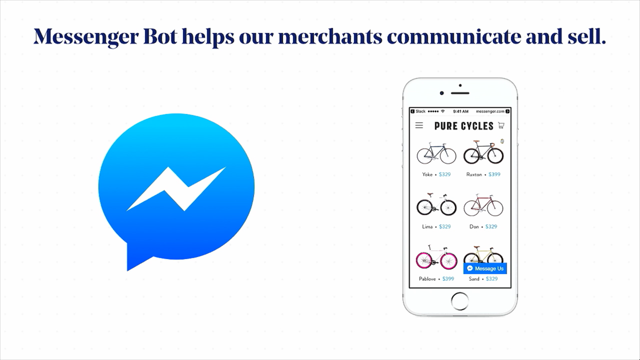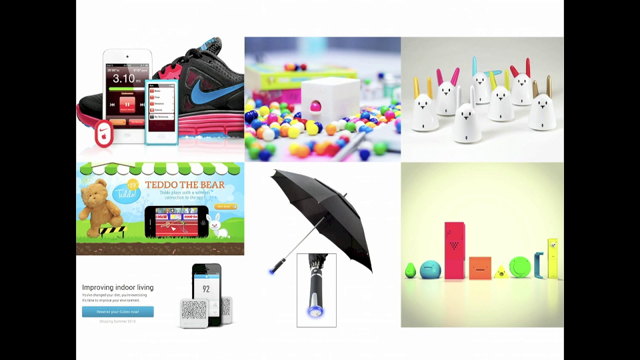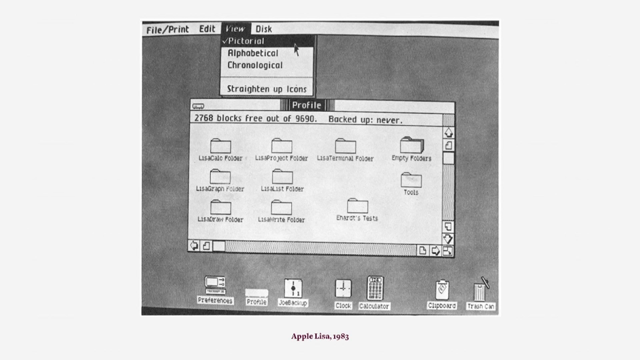A $700Bn data delusion

The Role of Advertising in Society
Jon Bradshaw opens the talk by humorously acknowledging his limited AI skills before transitioning to the significance of advertising. He highlights the massive $700 billion MarTech industry and questions its efficacy in benefiting advertisers and consumers. Bradshaw underscores advertising's critical role in funding platforms like Facebook, Google, and news organizations, emphasizing its broader societal impact. This introduction sets the stage for a deeper exploration of data-driven advertising and its challenges.
Understanding Data-Driven Advertising
Bradshaw delves into the concept of data-driven advertising, explaining its aim to connect products with receptive customers using digital data. He outlines the industry's rapid growth and the increasing complexity of marketing systems, driven by a significant portion of budgets now allocated to technology. Despite these advancements, he highlights a fundamental issue: only a fraction of advertising spend reaches the intended audience, raising concerns about the industry's structural inefficiencies.
The Pursuit of Effective Targeting
In this segment, Bradshaw explores the historical quest for more effective advertising, referencing the famous quote about wasted ad spend. He discusses the allure of using data to identify the right person, time, and message, but acknowledges the complexity and challenges involved. Despite the promise of data-driven solutions, he points out the persistent inaccuracies and inefficiencies in targeting, questioning the reliability of current data practices.
Challenges of Data Accuracy and Cost
Bradshaw critiques the quality of data used in advertising, illustrating with examples of inaccurate consumer profiles. He highlights the high costs associated with data-driven advertising, which often do not translate into proportional returns. The segment emphasizes the disconnect between the theoretical benefits of data targeting and the practical realities of its implementation, suggesting that the costs and inaccuracies may outweigh the advantages.
Incrementality and Effectiveness in Advertising
Bradshaw discusses the problem of incrementality, where targeted advertising often fails to generate additional sales beyond what would have occurred naturally. He presents studies showing that broad, untargeted advertising can sometimes achieve better results than data-driven approaches. This segment questions the fundamental assumptions of targeted advertising, suggesting that traditional methods may still hold value.
Rethinking Advertising Strategies
Concluding the talk, Bradshaw calls for a reevaluation of advertising strategies, advocating for a focus on human behavior and proven marketing principles. He suggests returning to contextual advertising and simplifying messages to align with consumer needs. Bradshaw emphasizes the importance of making advertising memorable and entertaining, reinforcing the idea that effective advertising should facilitate consumer decisions rather than force them. He closes with a humorous take on the notion of surveillance in advertising.
Good afternoon and thanks for the laughs.
That joke took a bit of work 'cause my ability with AI is probably not as good as yours is.
And this morning we've talked about the perils facing democracy solutions for climate change.
Answers to truth in a post-truth world.
But I'd like to bring us back to some stuff that's really important, like advertising and selling more shit to people.
So that's what we're gonna talk about today.
But to John's point, coincidentally it's relevant to this audio.
Because we've built this $700 billion MarTech industry that drives a lot of the investment in advertising today.
And I have some questions to ask about whether this is a good thing for advertisers, a good thing for selling more stuff.
So I'm gonna touch on like, hopefully without teaching people to suck eggs.
What data-driven advertising is.
Why marketers like me have been chasing this idea of using data to fuel their advertising.
And what was exciting about that idea?
I'm obviously gonna try and expose that as a kind of bit of a dream turned into a nightmare on why I think that's the case.
And unlike Nicholas, I think my suggestions for how we're gonna fix this are a little bit overly simplistic as we're talking about a pretty complex and wicked problem, but obviously I'll point some ways forward that I think might help.
And whilst I am gonna talk about advertising because I'm shallow and and I actually really like the topic of advertising, I think it is worth reflecting that without advertising, there is no Facebook, there is no Google, there is no Amazon, believe it or not, they don't make money out of selling things.
They money out of selling advertising to people who sell things.
And probably more important things like news are funded by advertising and when advertising goes away, we have to find other ways of funding news, like getting billionaires to pay for it, and we get all kinds of issues.
So whilst we're not gonna talk about any of that, 'cause I think advertising's way more important than any of that shit.
Like we should recognize the role that advertising plays in the kind of broader society.
So what is it?
And at its simplest, it's just a means of getting a product to a customer, right?
The product, in this case being the advertising that people want to show and the customer being somebody we're trying to find who's hopefully receptive to the messages that we're trying to communicate.
We built quite a complicated thing to do that, and I'm not good enough at the technology just stuff to know whether all of this shit is actually necessary just to take a message from point A and put it at point B. But this is the interactive advertising bureau's kind of diagram for just how, simple it is.
But really it's just trying to do one thing to use the data that exists within our kind of digital worlds and to put more data into that digital world if there isn't enough of it.
And to try and use that to help advertisers make their advertising.
More effective, which in itself is not a bad thing.
We're trying to help people meet their needs by giving them the stuff they want more easily.
It's a big fucking industry.
This industry did not exist 20 years ago.
It's now a $700 billion thing, growing at 31% a year.
This is where I get my, Im in advertising obviously I exaggerate things, but this is where I get my $700 billion kind of number from.
This is a huge concern.
There are lots and lots of people getting rich off the system.
But let me put that in a bit of context.
As a marketer, life doesn't look like that chart life looks like this chart.
Marketing budgets have come under pressure in the kinda last kind of 10 years.
This is a report from Gartner that says from 2016 to 2024, the marketing budget as a percentage of revenue has fallen by 36%.
That's almost a catastrophic level of disinvestment.
Like in what if you believe the kind of management academics is the fundamental department in any business, like strategy and marketing are indistinguishable, says Roger Martin.
A company has two operations that matter marketing and innovation according to Peter Drer.
And yet here we are removing funds from it at the same time as we're defunding marketing to use a kind of slightly loaded term.
What's been happening is because we're all very excited about using technology to drive marketing, we've had to build systems within the marketing organization that allow us to do this.
So we've all been investing in technology to help us access this stuff that allows us to advertising better, to the point where 20% of the marketing budget is now devoted to investments in technology.
When I was a young brand manager back in the Victorian era, this type of investment was called non-working spend, 'cause it never made its way to a customer.
It kinda stayed inside the organization and just helped us make things, but it didn't actually translate to stuff that a real human being saw.
And the other problem, you saw all those bits in the middle of the system, all of those different systems that help make the programmatic advertising industry work.
All those people need to get paid.
'Cause of course they need to get paid.
But what this results in, if you look at this study from the American Association of Natural Advertisers, is that it ends up in only 36 cents of the money that the advertiser invests ending up in the place where they want it, which is the publisher and all of the stuff in the middle.
You've got half of this going to the kind of people who are making all the data stuff happen and then another half going because the machines are buying things and the machines can't tell the difference between a site that has real people on it and a site that doesn't have real people on it, and a site that people watch for 0.2 of a second, and the site that people actually pay attention to.
So this is if you just stop and reflect on your life, what other thing that you buy, would you be happy if only 36 cents on your dollar went to the person who was actually providing you?
And everything else was just people in the, middle kind of getting in the way.
So this is a bit horrifying before we even get to whether it's a good idea or not.
Like we've got some kind of fundamental structural issues with the way this thing works.
So we end up with a bit of dilemma.
The marketing budget got spread really thin.
It went down overall.
We had to spend more on technology, which means we've got less for media.
The thing that actually makes shoppers buy things at the end of the day, and we've got many more snouts in that media trough.
So as a marketer, I am really hoping this data-driven ship works 'cause two of those problems are caused by the desire to use data to make advertising better.
So let's talk about why we did it.
Why did we get into this business in the first place?
What's so exciting about using data to make advertising anyway?
And why are the marketers chasing this dream?
And someone mentioned this to me, I have a coffee this morning.
This guy might be to blame.
And this is a guy from the Victorian era.
So you know, that shows how fast kind of marketing people solve problems.
It's only taken us like a century and a half to get here, but you've probably all heard this half of the money I spend on advertising is wasted.
I just don't know which half.
And it's a remarkably astute quote.
Like we might now, in the 21st century, talk about marketing as a complex system where cause and effect are really difficult to know, probably impossible to know, and therefore really.
Hard to say.
Do you wanna switch?
Thank you.
Is it me or is it your mic?
We dunno, it's the mic.
That was very generous, wasn't it?
Yeah, so how, so we've been trying to solve this problem for a while.
We've been trying to solve this problem forever, but the idea that we might be able to use data to do this makes this feel a bit more realizable, that now we've got all this information about people floating around in the digital ecosystem.
Maybe we can find work out which half of the money is wasted.
So what we're really trying to do, and I apologize for the extreme dumbing down of this, but hopefully it helps move us along quickly is we're trying to find the right person.
As a marketer I've got some kind of ideal person that I want to meet.
If I sell IT solutions, I wanna speak to people who buy IT solutions, not people who don't.
I need to find them at the right time.
So I know that sometimes people are in market to buy things and a lot of time people are not in market to buy things.
So I wanna catch 'em at the right time 'cause there's no point trying to sell somebody something when they're not actively looking and I'm trying to send them the right message.
Trying to tailor and custom the message to where you are and how you think and what you believe in so that you're more likely to do a thing as a result of the thing.
It's a beautifully simple little idea, right?
There's nothing too hard about that right person, right time, right message, and we solve Wannamaker's problem altogether.
It's also not like the data not being quite right is a new problem.
'cause if you grew up in the UK like I did, the person who said that quote was a guy called William Heskith Lever, not John Wannamaker.
So we've no idea who actually said the thing that everybody thinks it says anyway 'cause the data's never been right even a hundred years ago the data was wrong.
But anyway, so simple idea, solving a big problem at a time when marketers need the problem solved more than ever.
So why am I about to crap on it from a great height?
There's four problems.
I think.
It is not anything like as fucking simple as I made it out to be.
It's extraordinarily expensive and we forget about the cost of advertising, not just the results.
Sadly, it's mostly not incremental and we end up selling shit to people that they would've bought anyway, but just paying more money to do so and then we'll get to the bit that we started with, which is the data is really fucking awful.
We made it look simple, but it's not.
So let's just go back to our kind of simple little three part model.
Is the person really who the data thinks they are?
And I think I've already alluded to the fact that the answer to that question might not always be yes.
But probably more importantly to understand right time.
I've gotta understand a little bit about what they're thinking, or at least what they're doing right now.
So it's not just enough to know that you are John from Sydney.
I need to know where John from Sydney is in his life right now so that I can send him the advertising I want.
And then I've also got to work out using all the lovely stuff we've learned from going behavioral and economics and behavioral science.
How can I just adjust the message to this particular individual in this particular moment in time so that it's worth me making 20 messages rather than one so that we have a better effect already getting quite complicated.
And then for those of you who work with data in the room, you'd be slightly horrified to know that the profile data probably sits in a different place to the signal data, to the data that's in the publisher site.
And now we've got the world's most God almighty data matching system you've ever seen in your life.
And then we wonder why Just two days after you've bought a holiday to France, you get bombarded with advertising for messages for holidays to France.
It's really not simple like we're trying to do an incredibly difficult thing actually that I can put into really simple boxes.
And because marketers are mostly simple people, we like things that are dumbed down and don't understand that they're actually complicated underneath.
So it is quite hard.
We're solving a wicked problem.
It's prohibitively expensive.
And marketers, I have to I'm not gonna apologize to my profession at the end of the day.
But we're really terrible about thinking about profit sometimes, which is weird for a commercial function.
But this is a kinda really recent study that showed how much extra uplift do I need from the advertising to offset the combination of increased costs of doing all this stuff and paying all these people and making more creative stuff.
And the fact that by the very nature of targeting and reducing the audience down all the time.
And if we get anywhere close to real targeting, so let's just let's not talk to everybody in a kind of random spray.
Let's kinda get to 20%.
My ads now got to be four times more effective than it was in the spray and pray world.
If I knew how to make advertising that was four times more effective, I would not be talking to you lots today.
I would be on a yacht in the harbor with champagne, having a very lovely day.
Think four times more effective advertising is a dream I have never seen in 30 years of advertising.
So the costs of doing this certainly according to this study, likely not attainable.
The lifts you need to offset the costs likely not attainable, even if it works.
And we've been talking about this today.
Solving those types of problems is something that's sometimes incredibly difficult.
Like when it comes to recycling and climate change, we probably shouldn't accept the fact that it's gonna cost us some money to solve those problems.
But when you're in advertising, as long as you make more money, I don't care how much I waste really.
Like the fact that a bunch of my advertising go into people that don't really care.
Doesn't matter if I make more money, if we're only talking about advertising, which as I've established is the most important thing.
So yeah.
Our third problem is the problem of incrementality.
Imagine you're a shop owner and you've got a big sign on the front of your shop that says Today everything 20% off.
The problem with this type of advertising is that.
Even this level of discount is probably not enough to persuade most of you to go into a shop and buy something that you didn't want that day.
It's not a persuasive mechanism advertising in the main.
It's not gonna stop people in their tracks and go, do you know what?
I don't need any milk, but today I'm gonna go buy some 'cause it's 20% cheaper.
Mostly what this type of work does is it gives money off to people who are gonna buy anyway.
And one of the complicated jobs that people who study advertising effectiveness need to do is understand incrementality.
How many of the people that came and accepted my 20% off were actually extra to the ones I would've got anyway.
And that's a difficult thing to know.
But with things like advanced econometrics, we can do studies that show this.
So here's what's happens in kind of meta environments, Facebook and Instagram.
If I either optimized to an ideal audience.
So the greeny kind of bar at the bottom says, I'm trying to find people who are more likely to buy, people who are showing me buying signals, people who are optimized to convert the sale.
Let me find these ideal people at the ideal time.
And then the blue bar says, what happens to incrementality if I just spray it at a large Facebook audience?
And the answer is, 50% more incrementality in sales if I just plug in, send this ad to as many people as I possibly can, rather than try and use the data to get to a better audience.
50% more, again if I knew I had to make all of my advertising 50% more effective.
Wouldn't be talking to you lot.
So let's get to the kind of headline act if you like.
How good is this data?
And the answer is bad.
Really, fucking bad.
This is Arielle, Arielle's a man and a woman.
She's holding down four jobs, and despite the fact that she's got four jobs, she's living below the poverty line.
This is Ben.
I know Ben personally.
He's somewhere between 16 and 65.
He's either living on the poverty line or doing reasonably well.
He's either looking for a job, unemployed ,or a student.
And do you know what the beauty of that is?
If you are a data broker?
If you are a data broker, I can therefore sell you Ben almost irrespective of what you sell and when you're selling it and the it's funny, but it's also not funny.
This is a classic principle agent problem.
The data vendor is incentivized to put the data into as many different segments as they possibly can so that you will buy the record, and it's incredibly hard as the buyer of the data to know whether you bought.
Oh, missed one.
Nevermind to know whether you bought gold or shit.
And the answer unfortunately is a lot of the time it is shit.
And we're lucky that these people went, okay.
That's a really hard thing to know.
Did I buy accurate data or not?
But the people at HP said, let's go find out.
And however hard it is, let's go answer this question of are we actually reaching the right people?
And weirdly like all things in marketing, they came to some Australian academics to do research.
'Cause all great marketing science comes outta Australia.
That is a truth by the way.
Not a joke.
We lead the world in the understanding of marketing anyway.
Some guys from the University of Melbourne helped HP study whether if they use data to target their advertising.
Did it reach the right people?
Now obviously we're hp, I wanna speak to IT.
Decision makers or ideally, really big IT decision makers who can make really big decisions.
Here's what they found the difference between random prospecting in the internet and using second party data or third party data, just in case you don't know.
Third party data is cookies.
Gathering information from cookies.
Second party data is buying a list from a data vendor and then plugging that into the system, so more effective to randomly sample the new second or third party data.
If I use my own data, if I've curated a list of people that I think I know, that I think are accurate, I do get a massive one in four, correct?
One in four people that my advertising reaches the type of people that I want.
But if I buy media like we used to buy in the 1940s, I place ads in places that are about technology or about business.
I can get close to double the level of accuracy that I can with data.
We've been planning media like the orange bars since we started planning media.
You need some data to do that, but we certainly don't need, the massive data machine.
But let me just back the truck up.
One large step.
Custom it decision maker segments are no more helpful in finding the desired audience than random prospecting from a digital publisher network, random prospecting is guessing people using data to target the audiences.
No more helpful than guessing.
I don't get your fucking gender right most of the time when I use this stuff.
This is how bad this stuff really is.
Like we need a long hard look at are we ever gonna solve this wicked problem of right person at the right time with the right message by using data?
As I said, really big complex problem.
It's been going on since the Victorian era.
I am not smart enough to have the answers to that question, but let me kinda close with some kind of conclusion, at least, even if this is not gonna solve this $700 billion problem.
We need to start here 'cause we've had the cart in front of the fucking horse again, right?
We found some really cool shit that technology can do and then have tried to find an advertising problem to fit what the awesome shit the technology could do.
That's not the right way to solve problems.
We had stuff about life centered and human centered design earlier that's deliberately meant to remove this problem from the design system.
There are loads of amazing things technology can do to help advertising and advertisers do better work, but maybe this isn't one of them.
So we need to find technology solutions to real problems that advertisers have.
Which involve us thinking carefully about how advertising actually works, not run around looking for advertising problems for cool technology to solve and have to tell your marketers are some of the worst people for being excited about shiny new technology things and just trying to find ways of executing them.
And I'm actually pretty certain the people in this room are looking at those people with dismay and slight disgust.
What we're really talking about when we come to advertising, which is why it is a bit weird to be at a technology conference, is human behavior.
We're trying to change human behavior, and I really the way Bill Burn Back talked about this.
Bill's one of the founders of kind of modern advertising is the B and DDB.
A communicator should be concerned with unchanging math.
The way human behavior is shaped hasn't really changed.
Please nod at me because I'd hate to be wrong about this shit.
For hundreds of thousands of you.
I'm sorry to tell you, you haven't evolved much from the cave people We saw in a video earlier, you've got some nice clothes and some trappings, but you're mostly still driven by all the same stuff and therefore advertising needs to work with that bit of your humanity, not the bit that understands how an iPad works.
So we need to do two things, really go back to phishing where the fish are.
This is how we find the right people.
We find the right people by being in the places they wanted to go to already.
We can call it contextual advertising buying if we really wanna be a bunch of advertising wankers.
But it really just mean, go put your advertising in places where the audience is much more likely to be the right type of person, rather than desperately trying to use data to find some kind of idealized profile.
And when it comes to the message bit, there are some simple rules we can put in place that help us customize the message to where the person is in time rather than who the person is in reality.
'Cause knowing who the person is in reality is probably beyond.
If we need them to buy right now, we just need to make it simpler for them to buy, click here, buy now, stick it in the basket, remove all of the frictions out of the buying process.
That's what buying advertising should look like.
It's never gonna persuade you to buy something you don't want.
But it will if it if you make it easier for people make it more likely that they put you in the cart rather than somebody else.
If they need more information about what you sell and how it works and how much of it they needs and how much it's gonna cost, then be in the places where they're looking for information.
Unfortunately, I think that means that Dr. Google is still going to get a lot of our money 'cause that's how they're gonna find the places where the information is in the first place.
But that's okay.
We're not trying to put Google outta business here.
We're just trying to make advertising more effective and sell some more shit to people.
And for the 95% of your audience, and this is, it's a heuristic, but it's a good heuristic for the 95% of your audience who are not thinking of buying you in the near future.
Advertising needs to be entertaining.
It needs to be memorable, and it needs to be absolutely.
Recognizable as you, and that's pretty much the best you're gonna get out of advertising to people who are not in the market for your stuff today.
Simplify, inform, or entertain those of us who are serious about advertising science and understand how advertising works.
Know this, advertising is a weak force.
It doesn't persuade, it doesn't beat you over the head.
It doesn't make you do things that you didn't wanna do in the first place.
It clears the path.
Out of the way between you and the thing that you want.
It either makes things easier to buy or it makes things easier to remember so that when you come to buy, I'm the one that's already on your list.
So let me close by answering an important question.
Is Big Brother really watching you?
He might be, but if he isn't paying you any fucking attention.
Thank you.
Jon Bradshaw knows marketing –as an executive, consultant, and highly respected voice for decades in the industry. Here he challenges the $700 billion martech industry with eye-opening evidence on the limitations of data-driven advertising.
Drawing on recent research and his own expertise, Jon will discuss why broad-reaching, contextual ads often surpass targeted approaches, both in effectiveness and cost-efficiency. This session will question long-held beliefs and encourage a critical reevaluation of how we use data in marketing. And of the dominant privacy-intrusive business model of the mar-tech industries.















